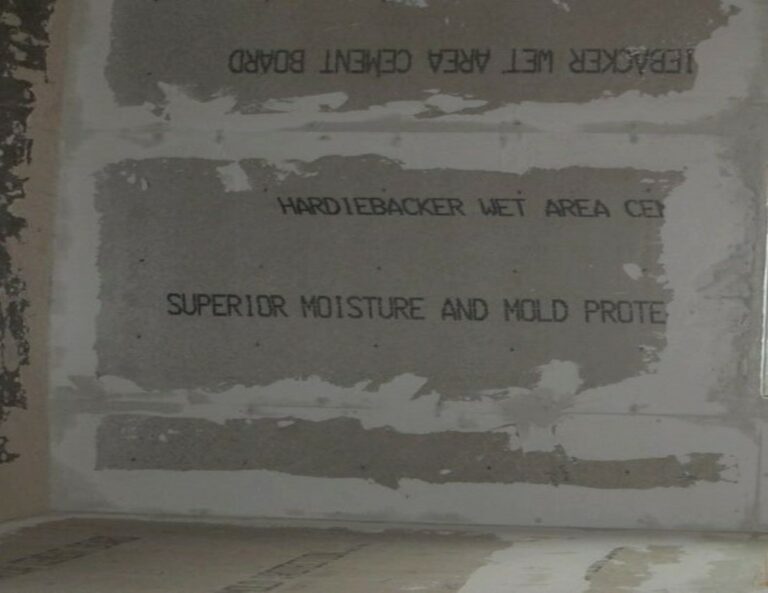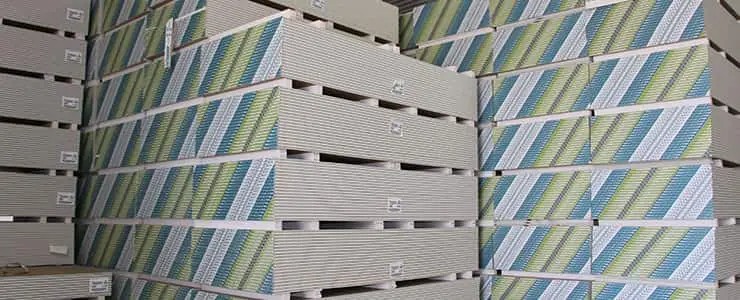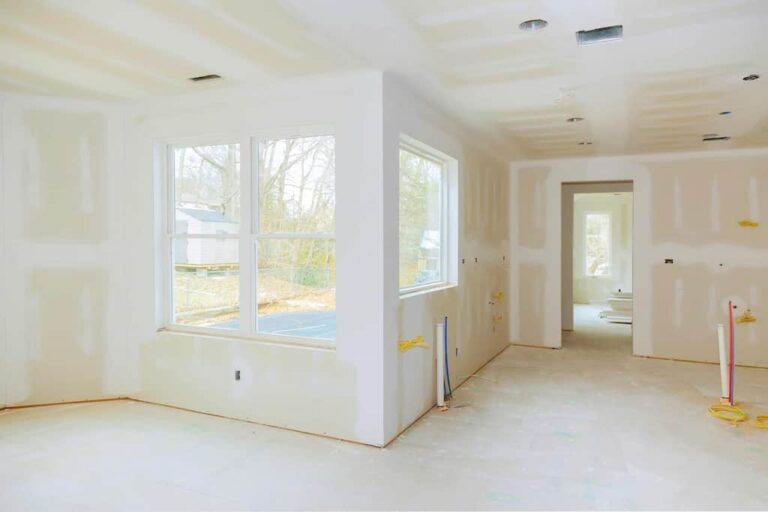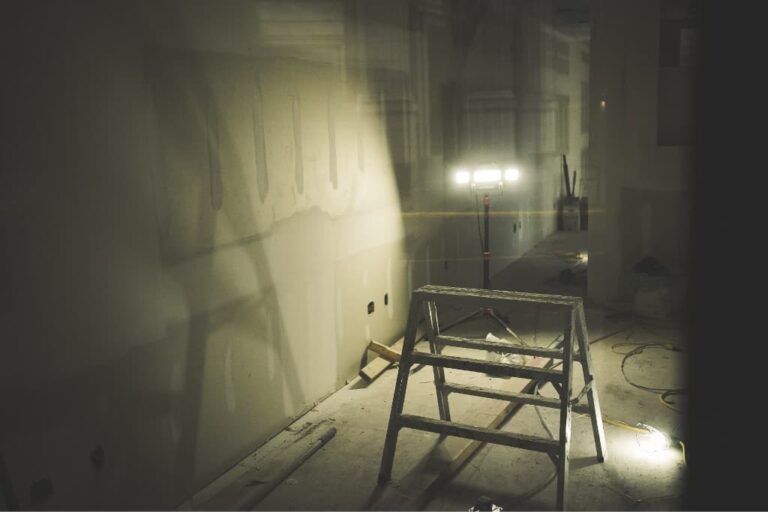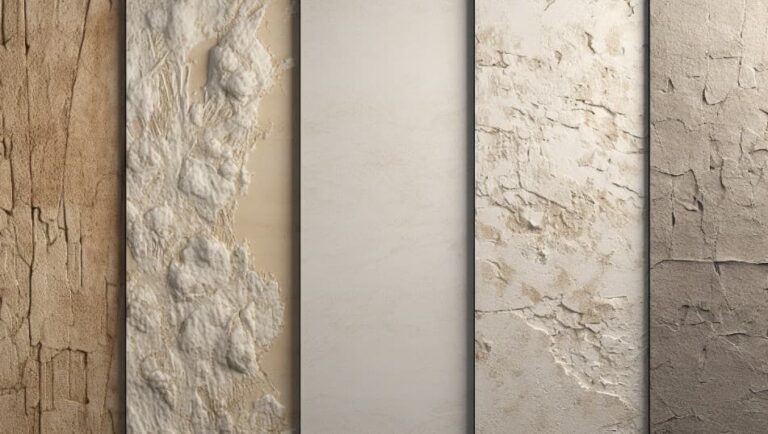Is Cement Board Mold Proof?

Are you tired of constantly battling mold in your bathroom or kitchen? Well, get ready for some good news! Cement board could be the solution you’ve been searching for.
Is the cement board resistant to mold? Not quite, but it boasts high mold resistance, making it an ideal choice for areas prone to moisture. By opting for cement board, you’re taking a proactive step in preventing mold growth. Its unique composition and construction create an inhospitable environment for mold.
However, it’s important to note that it’s not entirely impervious to mold. Regular cleaning and maintenance are still crucial to maintain a mold-free space.
What makes cement board resistant to mold?
Cement board, like the Durock brand, is specifically engineered to resist mold due to its unique composition. The primary ingredient in cement board is Portland cement, which provides the board with strength and durability. This composition allows cement board to withstand moisture and humidity, making it an excellent choice for areas prone to mold growth, such as bathrooms and kitchens.
In addition to Portland cement, the cement board includes reinforced fiberglass mesh, further enhancing its mold resistance. This mesh reinforces the board, adding strength and stability to prevent mold growth.
Furthermore, cement board is commonly used as a tile backer, and its composition allows for exceptional bonding with tiles. The Portland cement in the board creates a strong and durable surface for tiles to adhere to, ensuring that they remain in place even in high-moisture environments.
Mold Resistance of Cement Board
Cement board provides excellent resistance to mold, making it a dependable choice for areas prone to moisture. Brands like USG Durock offer specially designed cement boards that effectively hinder mold growth. These boards, composed of Portland cement, don’t serve as a food source for mold, thereby preventing its proliferation.
Their water-resistant properties and strong tile adhesion make them ideal for wet areas like bathrooms and kitchens, where mold growth is a concern. The composition and construction of cement boards contribute to their ability to resist mold, reducing the risk of infestation.
However, it’s important to note that while cement boards are resistant to mold, they aren’t entirely mold-proof. Regular cleaning and maintenance are still necessary to prevent any potential mold growth. Cement boards like USG Durock Brand come with warranties, including exterior warranties, making them a reliable choice for moisture-prone areas.
Benefits of Using Cement Board
When considering the use of cement board, you can enjoy its exceptional durability and resistance to mold. Cement board is a dependable and long-lasting choice for construction projects, providing outstanding tile adhesion and improved edge performance. Its ability to withstand water makes it suitable for various applications, including flooring, walls, countertops, tub and shower areas, and exterior finishing systems.
One of the key advantages of cement board is its mold-resistant properties. Specifically designed for use in areas prone to moisture, such as bathrooms and kitchens, it effectively prevents mold growth by not providing it with a food source. This ensures a healthier environment and makes it an excellent option for laundry rooms with high humidity and moisture levels.
Incorporating cement board into your construction projects lets you have peace of mind, knowing you’re providing a durable and mold-resistant solution.
Key Benefits of Cement Board
- Exceptional durability and resistance to mold
- Reliable and long-lasting option for construction projects
- Enhanced tile bond and edge performance
- Water durability for various applications
- Ideal for moisture-prone areas like bathrooms and kitchens
- It prevents the growth of mold and ensures a healthier environment
- Suitable for laundry rooms with high humidity and moisture levels
Maintenance Tips for Cement Board
To ensure your cement board remains in optimal condition, it’s important to regularly inspect it for any visible cracks or stains that may impact its performance. Here are some valuable maintenance tips to keep in mind:
- Maintain a Flat and Even Surface: It’s crucial to ensure that your cement board stays flat and even, without any ridges. This will guarantee its proper functionality and prevent potential issues in the future.
- Regular Cleaning and Treatment: While cement board is resistant to mold, cleaning and treating it regularly is still necessary to prevent mold growth. Use a mild detergent and water to clean the surface, and consider applying a mold-resistant treatment for added protection.
- Consider Waterproof Membrane: If you’re installing tiles on your cement board, using a waterproof membrane during installation is advisable. This will enhance the water resistance of the cement board and provide an additional layer of protection against moisture.
- Pay Attention to Visual Indicators: Stay vigilant for unusual patterns or discoloration on the cement board. These can be signs of structural problems or the presence of mold. If you notice anything concerning, it’s important to address it promptly.
Limitations of Cement Board’s Mold Resistance
To effectively maintain the mold resistance of cement board, you must be aware of its limitations. While cement board is designed to resist mold growth, it isn’t completely mold-proof. Factors such as excessive moisture or dirt accumulation can still encourage mold growth on cement boards. Cement boards aren’t waterproof and can absorb water, leading to mold formation.
It’s crucial to regularly clean and treat cement boards to prevent any mold growth behind tiles. Neglecting proper maintenance can create an environment where mold can thrive. Soft or spongy cement boards are also unsuitable as tile substrates as they can be more prone to mold growth. Therefore, using a sturdy and properly installed cement board is essential to minimize the risk of mold development.
Furthermore, in areas with high moisture levels, such as bathrooms, it’s advisable to use a waterproof membrane during tile installation to prevent water absorption and subsequent mold growth. By understanding these limitations and taking the necessary preventive measures, you can effectively maintain the mold resistance of cement board.
Frequently Asked Questions
Does Cement Board Absorb Moisture?
No, the cement board does not absorb moisture. It is designed to resist moisture, making it suitable for wet areas such as bathrooms and kitchens.
Is Hardie Board Mold-Resistant?
Yes, Hardie board has excellent resistance to mold. Its unique composition of cement, sand, and cellulose fibers creates an inhospitable environment for mold growth. This makes it a reliable choice for preventing mold and maintaining a mold-resistant surface, especially in moisture-prone areas. Hardie board’s ability to resist mold is a valuable feature that homeowners can count on to keep their spaces clean and healthy.
Is Cement Board Waterproofing?
Yes, cement board is resistant to mold. It is specifically designed for areas prone to moisture, such as bathrooms and kitchens. However, regular cleaning and maintenance are still necessary to prevent mold growth, as it is not completely mold-proof.
Is Green Board or Cement Board Better for Showers?
When choosing the best material for showers, cement board reigns supreme over green board. Cement board is designed explicitly for moisture-prone areas, making it an ideal choice for showers. Its inherent resistance to mold sets it apart from the green board, which is less durable and more susceptible to mold growth.
Cement board offers a plethora of advantages for shower installations. Its unique composition and construction make it highly resistant to moisture, ensuring that it remains free from mold and mildew. This is crucial in maintaining a clean and hygienic shower environment.
Additionally, the cement board provides enhanced durability and stability, making it a long-lasting solution for showers. Its robust nature allows it to withstand the rigors of daily use without compromising its structural integrity. This is especially important in showers, where constant exposure to water and steam can weaken conventional building materials.
The cement board offers ease of installation and versatility. It can be easily cut and shaped to fit any shower design, allowing for seamless integration and customization. Its compatibility with various tile and stone options ensures you can achieve the aesthetic appeal desired for your shower.
Conclusion
In conclusion, the cement board provides significant mold resistance, making it a top-notch solution for moisture-resistant areas. By leveraging its unique properties, you can enhance the longevity and cleanliness of your spaces. So, unlock the potential of cement board and embrace a mold-free environment.

